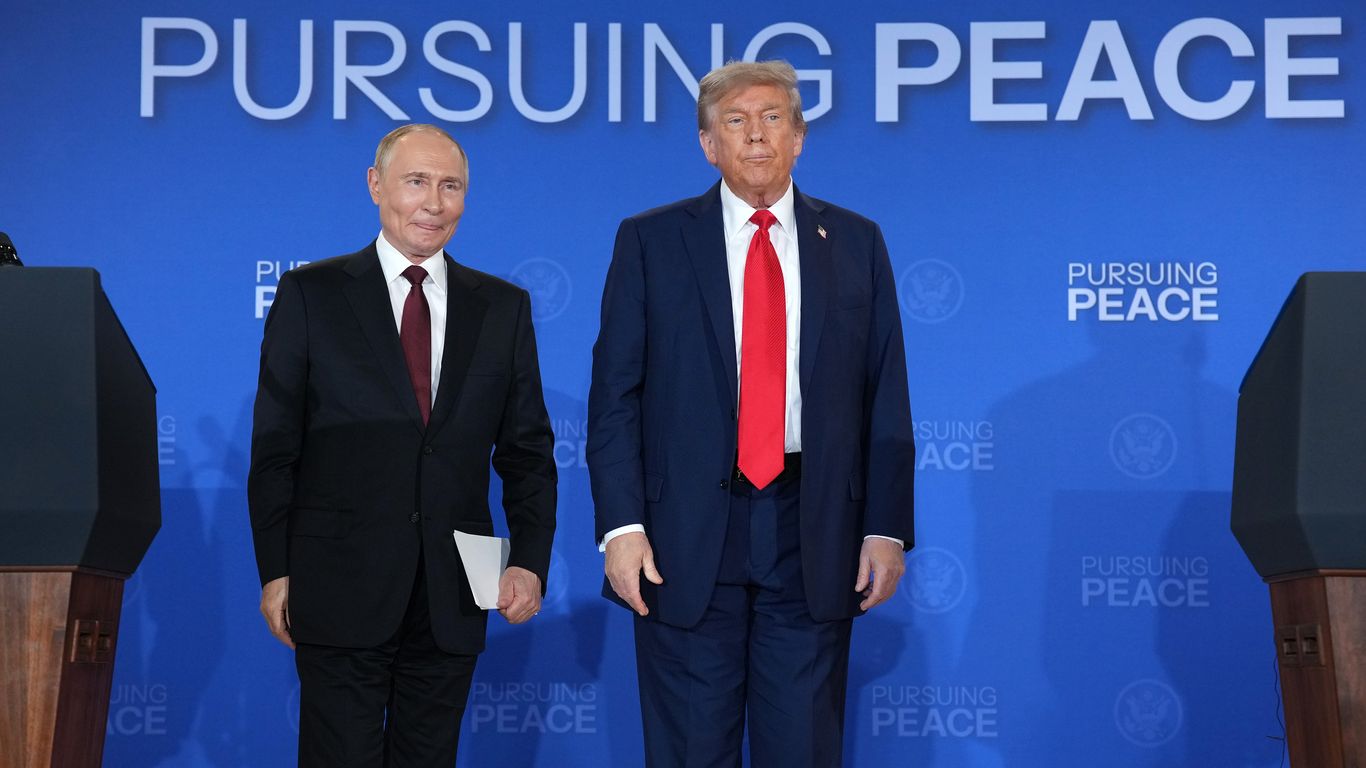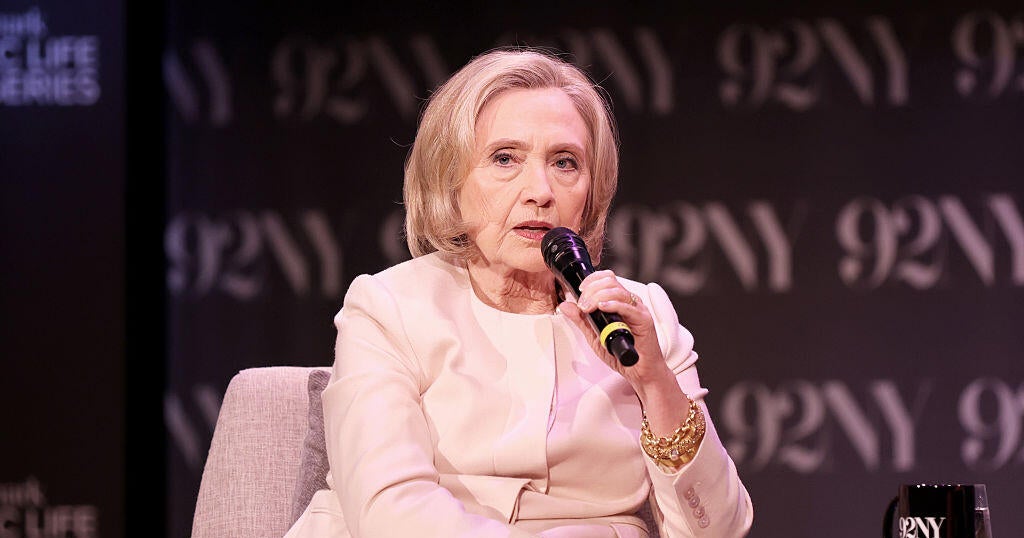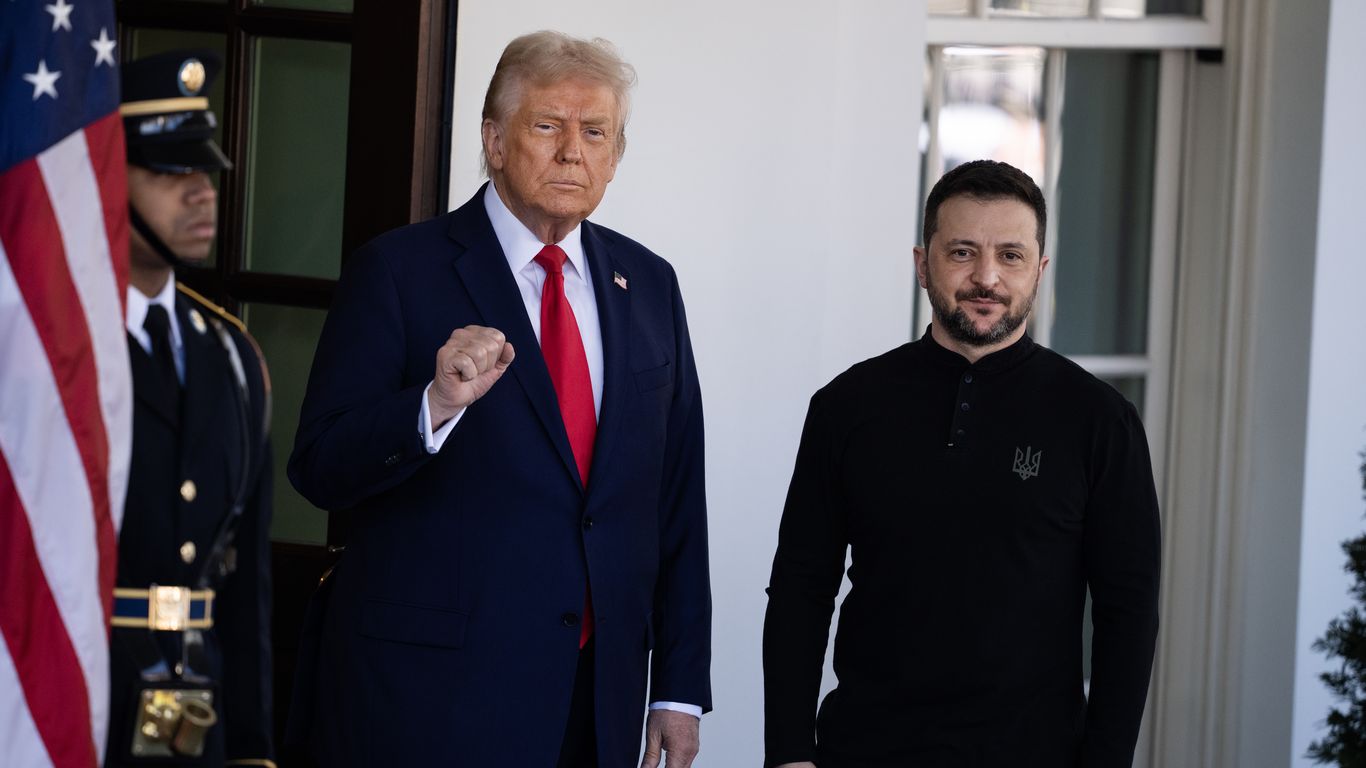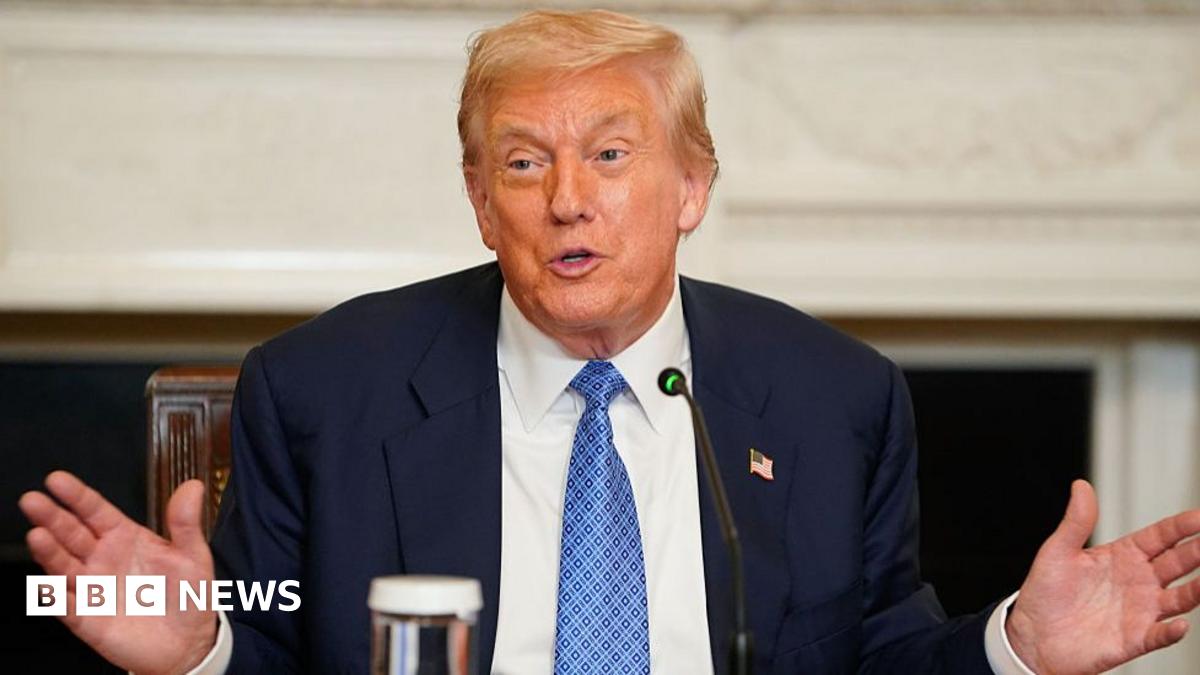Mixed reactions to Trump-Putin summit

Introduction
The recent meeting between US President Donald Trump and Russian President Vladimir Putin in Alaska has sparked mixed reactions from European leaders. While some view it as a diplomatic victory for Putin, others see it as a missed opportunity for the US to address key issues. The summit, which was the first between the two leaders since 2018, has raised concerns about the future of US-Russia relations and their impact on global affairs. DW has the details on how European leaders are responding to the highly anticipated summit.
Key Details
Many European leaders have expressed disappointment with the summit, arguing that it lacked concrete outcomes and did little to address important issues such as human rights and cyber security. Some have also criticized Trump for not standing up to Putin on issues such as Russian interference in the 2016 US election and the recent poisoning of Russian opposition leader Alexei Navalny. Others, however, have praised the summit as a step towards improving US-Russia relations and potentially easing tensions in regions such as Ukraine and Syria. Despite the mixed reactions, it is clear that the impact of this summit will be felt far beyond US and Russian borders.
Impact
The Trump-Putin summit has once again highlighted the complexities of the US-Russia relationship and the challenges of navigating diplomatic efforts between the two countries. While some may view the summit as a missed opportunity, it also serves as
About the People Mentioned
Donald Trump
Donald John Trump, born June 14, 1946, in Queens, New York, is an American businessman, media personality, and politician. He graduated from the University of Pennsylvania’s Wharton School in 1968 with a degree in economics. In 1971, he took over his family’s real estate business, renaming it the Trump Organization, through which he expanded into building and managing skyscrapers, hotels, casinos, and golf courses. Trump gained widespread fame as the host of the reality TV show *The Apprentice* from 2004 to 2015, which helped establish his public persona as a successful entrepreneur. Trump entered politics as a Republican and was elected the 45th president of the United States, serving from 2017 to 2021. His presidency was marked by significant policy actions including tax cuts, deregulation, the appointment of three Supreme Court justices, renegotiation of trade agreements (notably replacing NAFTA with the USMCA), and a focus on immigration control including border wall expansion. He withdrew the U.S. from international agreements such as the Paris Climate Accord and the Iran nuclear deal, and engaged in a trade war with China. His administration’s response to the COVID-19 pandemic was criticized for downplaying the virus’s severity. Trump was impeached twice by the House of Representatives—first in 2019 for abuse of power and obstruction, and again in 2021 for incitement of insurrection—but was acquitted by the Senate both times. After losing the 2020 election to Joe Biden, Trump challenged the results, culminating in the January 6, 2021, Capitol riot. He remains a central figure in American politics, having won the 2024 presidential election and returned as the 47th president in 2025, continuing to promote policies aimed at economic growth, border security, and military strength[1][2][3][4].
Vladimir Putin
Vladimir Putin is the current President of Russia, a position he has held for multiple terms since 2000, with a brief interlude as Prime Minister from 2008 to 2012[1][3]. Born in Leningrad (now Saint Petersburg) in 1952, Putin began his career in the Soviet Union’s security services, joining the KGB in 1975 and rising to the rank of Lieutenant Colonel by the time he left in 1991, following postings in East Germany and Leningrad[4]. After the Soviet Union’s collapse, he transitioned into politics, serving as an adviser to Saint Petersburg Mayor Anatoly Sobchak and later moving to Moscow, where he held various administrative roles under President Boris Yeltsin[6]. Putin was appointed Prime Minister in August 1999 and became acting President when Yeltsin unexpectedly resigned that December[3][6]. He won his first presidential election in March 2000, promising to stabilize Russia’s economy and political system after the tumultuous 1990s[3][7]. During his initial terms, he centralized power, reasserted federal control over Russia’s regions, and curtailed the influence of the country’s oligarchs through legal and economic measures[7]. Putin was re-elected in 2004 but, due to constitutional term limits, stepped aside in 2008, becoming Prime Minister under his successor Dmitry Medvedev, while retaining significant influence[3]. Constitutional amendments later extended presidential terms, and Putin returned to the presidency in 2012[1]. Putin’s time in office has been marked by assertive foreign policy, including military interventions in Syria in support of President Bashar al-Assad and the 2014 annexation of Crimea, which led to international sanctions[1]. Domestically, his tenure has seen increased state control over media, the suppression of political opposition, and constitutional changes consolidating executive authority[1]. In 2022, Russia’s full-scale invasion of Ukraine triggered a major international crisis, further isolating Russia from the West and prompting widespread condemnation[1]. As of 2025, Putin remains a dominant figure in Russian politics, having secured another term in office through constitutional changes that allow him to potentially remain president until 2036[1]. His leadership continues to shape Russia’s domestic trajectory and its role in global affairs, amid ongoing conflict in Ukraine and strained relations with NATO and Western countries[1].
About the Organizations Mentioned
DW
Deutsche Welle (DW) is Germany's international public service broadcaster, renowned for its global reach and commitment to providing unbiased news and information. Established in 1953, DW has evolved significantly over the years, expanding its services to cater to a diverse audience worldwide. ### History and Expansion DW began its journey as a radio broadcaster but quickly expanded into television in 1963. Throughout the 1960s, it introduced new languages and services, including broadcasts in Hungarian, Persian, and Chinese. This expansion continued through the decades, with significant growth in the 1970s and 1980s. By the 1990s, DW fully embraced digital technologies, further enhancing its global presence. ### Current Status and Services Today, DW operates in 32 languages, offering a wide range of multimedia content through TV, radio, and online platforms. It aims to foster cultural understanding and exchange by providing a platform for diverse perspectives. DW's content focuses on critical issues such as freedom and human rights, democracy, global trade, technology, and environmental protection. The organization also supports the development of independent media globally through DW Akademie, which trains journalists in over 50 countries. ### Key Achievements and Notable Aspects - **Global Reach**: DW generates 320 million user contacts weekly, making it a significant player in international journalism. - **DW Akademie**: This arm promotes media development and supports free press initiatives worldwide. - **Digital Transformation**: DW has effectively adapted to new technologies, leveraging social media and digital platforms to increase its reach. - **Partnerships**: Recent collaborations, such as the partnership with NYC Media, have expanded DW's content distribution in the U.S., offering programs in both English and Spanish. Overall, DW's commitment to unbiased reporting and its dedication to fostering global understanding have established it as a leading international broadcaster. Its continued evolution in the digital age ensures its relevance and influence in the global media landscape.














